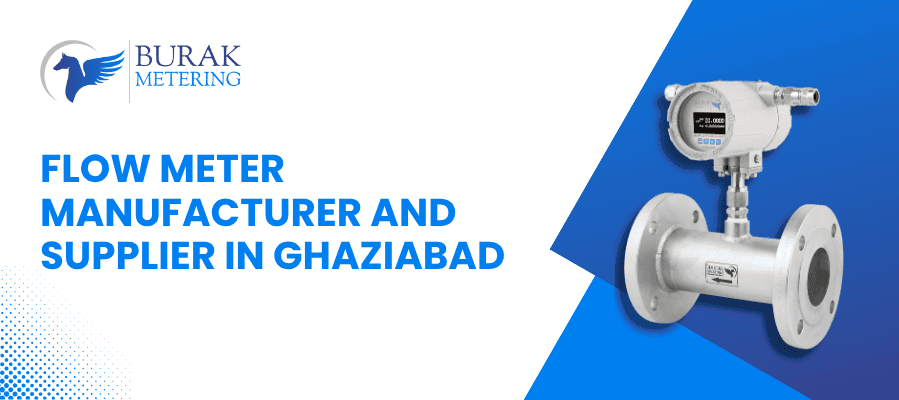Being an industrialist, you understand the importance of accurate flow measurement in your system operations. Whether you belong to any industry pharmaceutical, or oil and gas, having a reliable flowmeter is essential to ensure the quality of your products. In this article, explore the benefits of having a reliable flow meter in your industry.
What is a Flow Meter?
Flow meter is a technological device that is used to measure the volume of a medium flowing through the pipe either liquid or gas. Gas flow meters, compressed air flowmeters, and other various flowmeters are designed for measuring particular mediums. They play an important role in numerous industrial operations, HVAC, oil and gas, wastewater treatment, and more. Precise flow measurement is essential to determine whether the systems are working properly and guarantee safety.
Flowmeters use units to measure the volume of fluid flowing through a pipe in liters per minute (L/min), gallons per minute (GPM), or cubic meters per hour (m3/h). They are used to monitor and control the flow rate of the medium in the pipe.
Types of Flow Meters and Their Principles
Flow meters are available in various types. Firstly, they are classified based on the measuring medium and then further categorized into meter types.
i) Mass Flow Meters:
- Principle:
- The measuring principle of a thermal meter is measuring how much heat is taken away from a heated part of the pipe when a fluid is flowing through it.
- The meter has two parts: a hot part and a thermometer which measures the change in heat. When the fluid flows over the hot part, it takes some of the heat away with itself causing the temperature to change.
- The more heat that’s taken away, the more fluid is flowing.
- Applications:
- Thermal flow meters are generally used in industries where precise flow measurement is very important, such as HVAC systems, chemical factories, and industries where monitoring of the environment is done.
2. Coriolis Mass Flow Meter:
- Principle:
- The Coriolis is named after a French engineer named Gaspard-Gustave de Coriolis who first described the Coriolis force which is used in this flow meter.
- Coriolis flowmeter uses a tube that vibrates and makes the fluid flowing through it twist. This twisting motion is because of the force called Coriolis force.
- There is a sensor attached to the tube that measures how much the tube twists, and this twisting motion is directly related to how much fluid is flowing. The more fluid that’s flowing, the more the tube twists.
- Applications:
- Industries such as chemical plants, oil refineries, and food processing factories use this flow meter for accurate measurements.
ii) Volume Flow Meters:
1. Electromagnetic Flow Meter:
- Principle:
- This type of flow meter uses a special kind of magnetism to measure how much fluid is flowing.
- When a conductive fluid (like water or liquid metal) flows through a magnetic field created by coils around the meter, it creates an electric signal that's related to the flow rate.
- The meter has special electrodes inside that detect this signal and turn it into a measurement of how much fluid is flowing.
- Applications:
- Electromagnetic flow meter is great for measuring the flow of liquids that conduct electricity, such as in water treatment plants, power plants, and pharmaceutical production lines.
2. Turbine Flow Meter:
- Principle:
- A tiny turbine is attached inside the pipe, and it spins when the fluid flows through it.
- The turbine blades are connected to a spinning wheel, and the faster the fluid flows, the faster the wheel spins.
- A sensor attached to the wheel measures how fast it's spinning and converts that into a measurement of how much fluid is flowing. The faster the wheel spins, the more fluid is flowing.
- Applications:
- Turbine flowmeters are used in measuring the flow rate of liquids and in industries such as oil refineries, chemical plants, and power plants.
3. Vortex Flow Meter:
- Principle:
- A vortex flow meter creates (vortices), swirly motions in the fluid as it flows through the pipe. As the fluid flows, the obstacle creates little whirlpools that spin off and move away.
- The speed at which these whirlpools spin is directly connected to how fast the fluid is flowing.
- Attached sensors detect these whirlpools and use their speed and strength to calculate how much fluid is flowing.
- Applications:
- This type of flow meter is often used in places where we need to measure the flow rate of water, air, or other liquids, such as in water treatment plants, heating and cooling systems, and farms.
4. Oval Gear Flow Meter:
- Principle:
- An oval gear flow meter has two toothed precision wheels, which are oval-shaped gears that turn when the fluid flows through them.
- The gear's rotation speed and direction determine how fast the fluid flows. Every time the gears turn, they move a certain amount of fluid, and the meter measures this volume to calculate the flow rate.
- Applications:
- This type of flow meter is commonly used in industries like food and drink manufacturing, chemical processing, and pharmaceutical production to measure the flow of different liquids.
Industrial Applications of Different Types of Flow Meters
Each type of flow meter is suited for specific industrial applications, ensuring accurate and efficient flow measurement.
1. Turbine Flow Meters:
- Oil and Gas: Measure the flow rate of crude oil, natural gas, and refined petroleum products in pipelines.
- Chemical Processing: Measure the flow rate of chemicals like fertilizers, pesticides, and pharmaceuticals.
- Power Generation: Measure the flow rate of steam, water, and other fluids in power plants.
2. Coriolis Flow Meters:
- Chemical Processing: High-precision measurement of chemicals, such as pharmaceuticals and specialty chemicals.
- Oil and Gas: Measure the flow rate of crude oil and natural gas in pipelines.
- Food and Beverage: Measure the flow rate of liquids, such as milk, beer, and juice.
3. Vortex Flow Meters:
- Water Treatment: Measure the flow rate of water in municipal water treatment plants and wastewater treatment facilities.
- HVAC Systems: Measure the flow rate of air in heating, ventilation, and air conditioning systems.
- Agriculture: Measure the flow rate of irrigation water in farming applications.
4. Electromagnetic Flow Meters:
- Water Treatment: Measure the flow rate of water in municipal water treatment plants and wastewater treatment facilities.
- Power Generation: Measure the flow rate of steam and water in power plants.
- Pharmaceuticals: Measure the flow rate of pharmaceutical liquids in production lines.
5. Oval Gear Flow Meters:
- Food and Beverage: Measure the flow rate of liquids like milk, beer, and juice.
- Chemical Processing: Measure the flow rate of chemicals in production lines.
- Pharmaceuticals: Measure the flow rate of pharmaceutical liquids in production lines.
Why Choose a Local Flow Meter Manufacturer and Supplier?
Industries might think that partnering with global manufacturers and suppliers will be beneficial, but working with a flow meter manufacturer and supplier in India will have exceptional benefits, such as less transportation time, easy maintenance services, cost savings, customization as per requirements, and best after-sales support since they are located nearby.
At Burak Metering, we’re proud to be a leading flow meter manufacturer in India and a supplier in various locations such as Ghaziabad, Delhi, Chandigarh, and more.
Our experienced team is equipped with the capabilities to provide you with the exact flow meter solution you need for your operations. We are electromagnetic flow meter manufacturers in India along with a wide range of flow measurement devices.
"Looking for the right flow meter? Contact Burak, India’s one of the best suppliers, to help you navigate your options and select the best product."
What to Look for When Choosing a Flow Meter Manufacturer and Supplier
When selecting a flow meter manufacturer and supplier, consider the following factors:
- Quality Certifications: Look for manufacturers with relevant certifications such as ISO 9001:2015 or MSME. These certifications are approvals that ensure the devices are secure and fit to use.
- Supplier Industrial Experience: Choose a supplier with experience working with your industry or similar applications. A knowledgeable supplier will guide you through the right products and help choose the best for your industrial needs.
- Product Range: Ensure the supplier offers a comprehensive range of flow meters that cater to your specific needs. Burak is a manufacturer and supplier of a range of flow meters used in industries.
- Support After-Sales: Look for suppliers that offer dedicated after-sales support and maintenance services. Having the same supplier to provide the maintenance services will be of utmost benefit.
Installation and Maintenance of Flow Meters
Flow meters are very crucial parts that need professionals to install. Each type of flow meter has different installation procedures and different factors to be considered before installing to ensure a successful setup.
Regular maintenance requirements are supposed to be fulfilled immediately to prevent any mishaps and continue the smooth performance of the meter.
Conclusion
For industrial operations to be both efficient and high-quality, accurate flow measurement is essential.
Selecting a reputable flow meter manufacturer and supplier in Ghaziabad will help you make sure you have the right tools for your requirements.
Get in touch with us right now to learn how we can assist you with your flow meter needs.
Share this post

Saeed Lanjekar
LinkedIn
I’m Saeed Lanjekar, founder of Burak Metering. With a background in engineering and technology, I’ve dedicated my career to creating advanced metering solutions that push the boundaries of accuracy and efficiency. At Burak Metering, we’re committed to delivering top-notch technology and driving innovation in the metering industry.
 Phone
Phone
